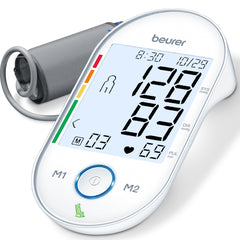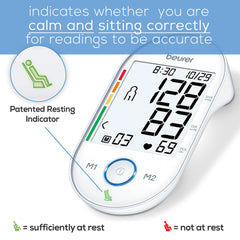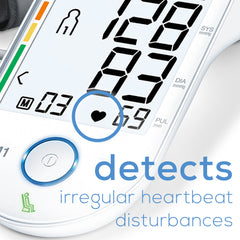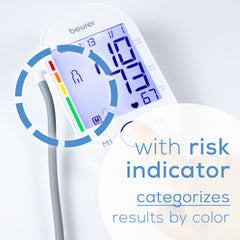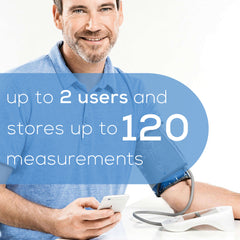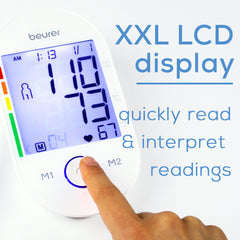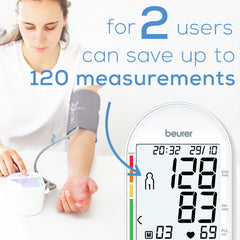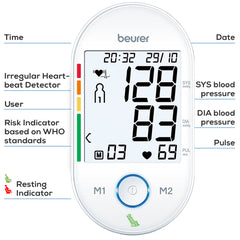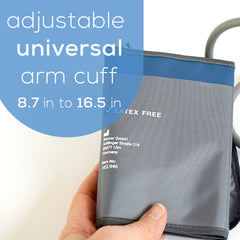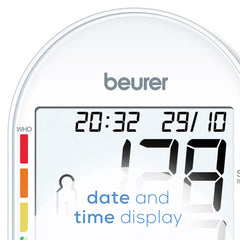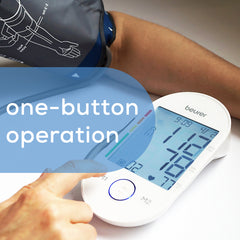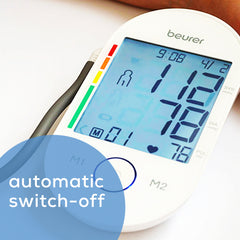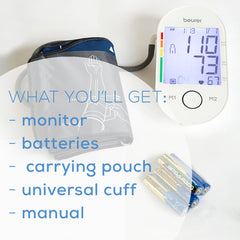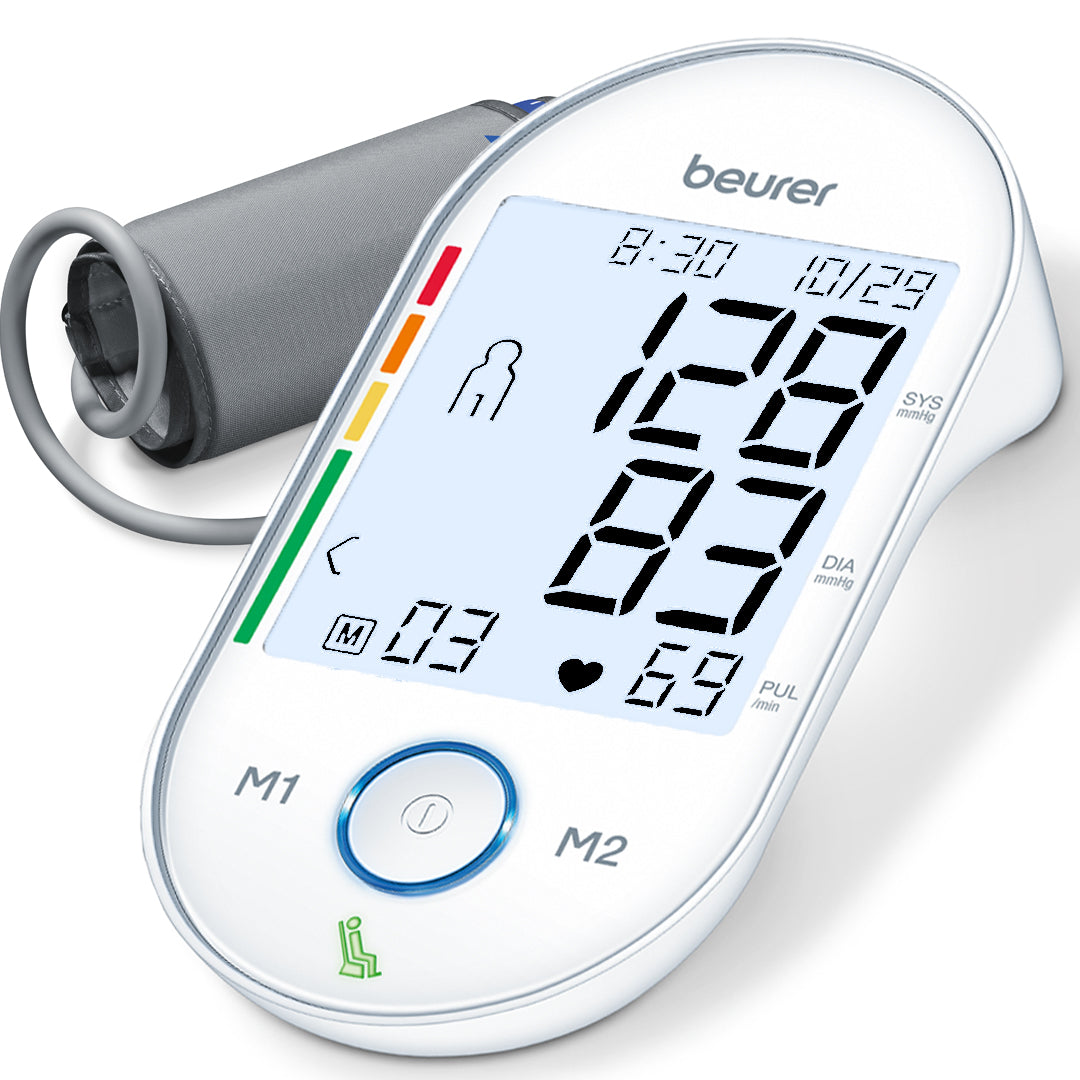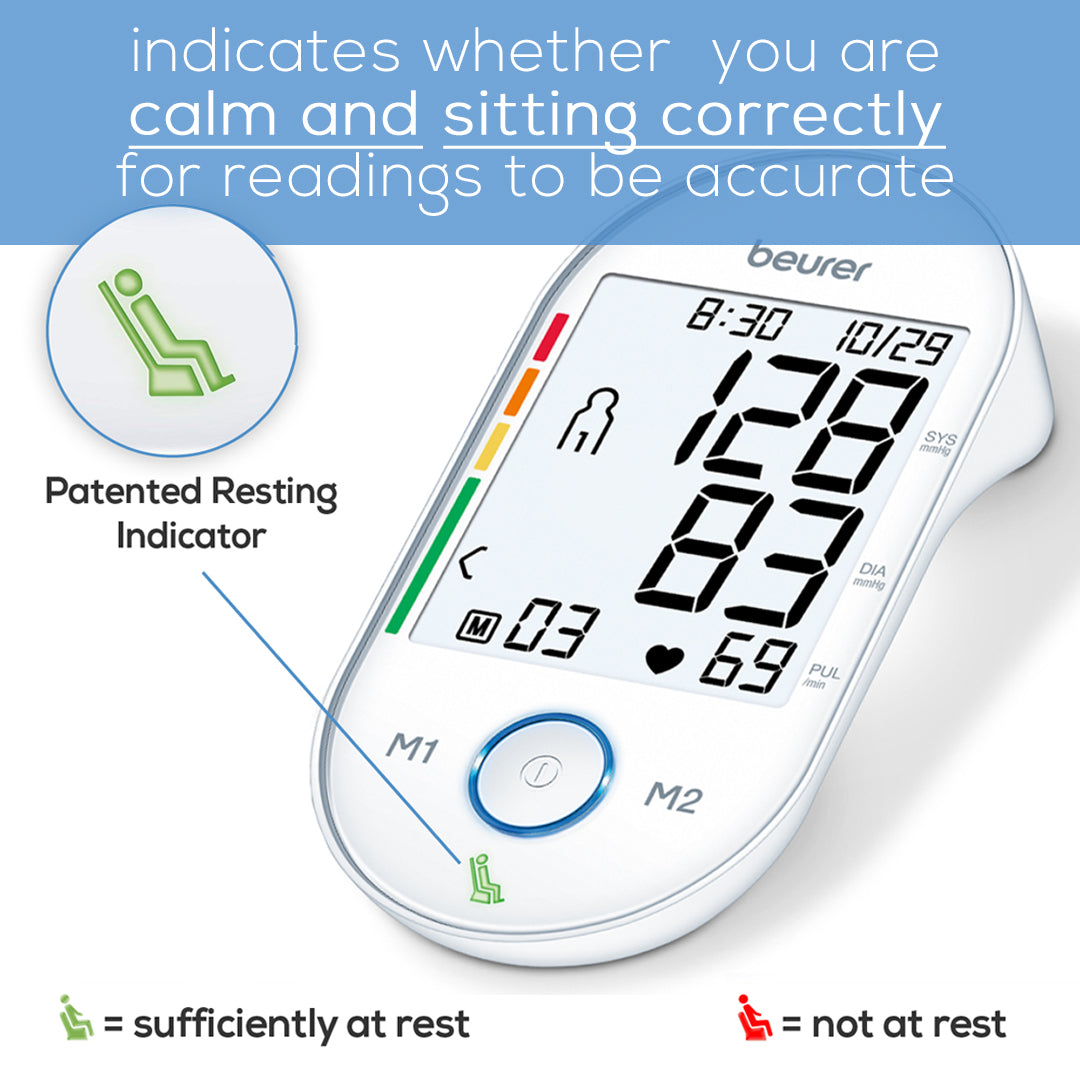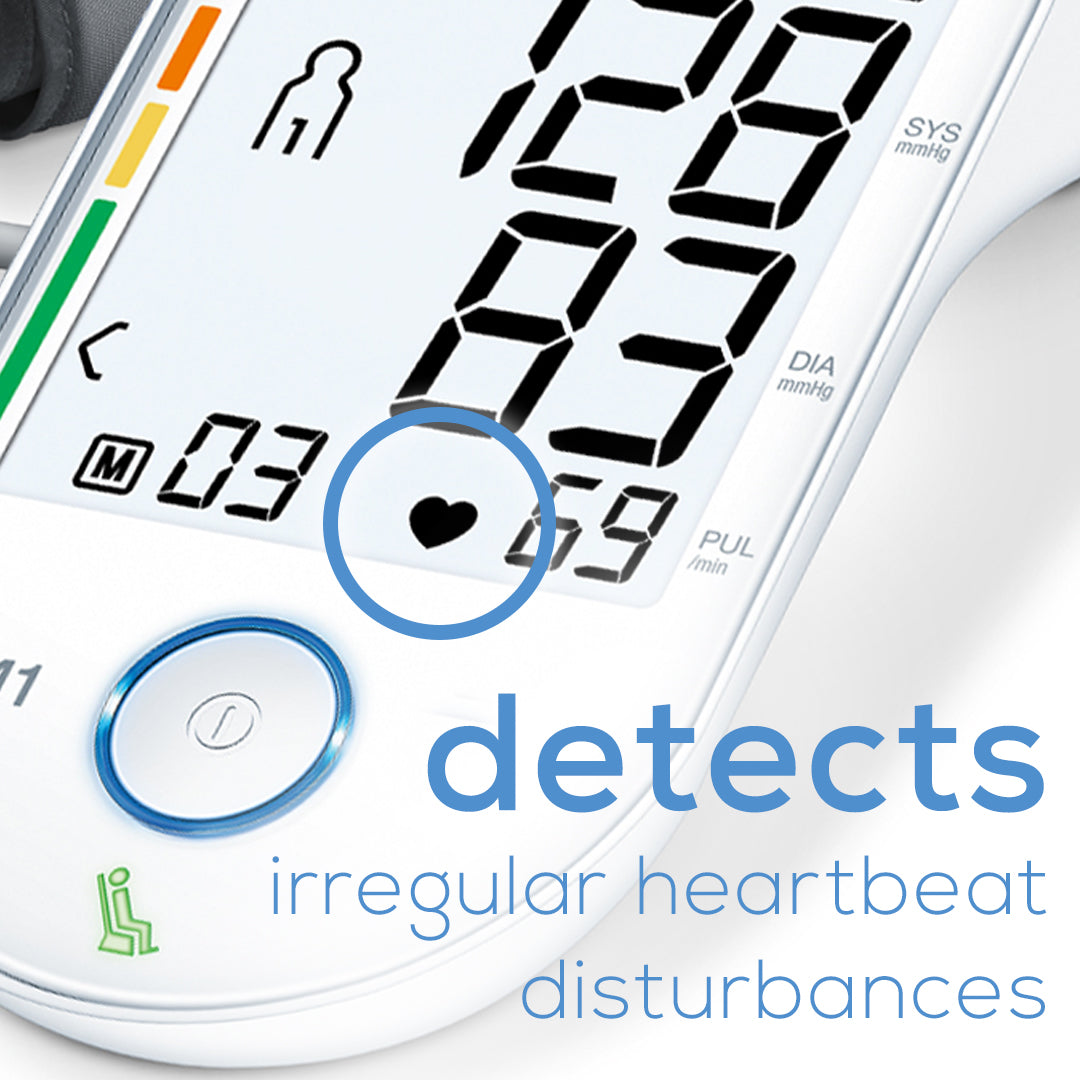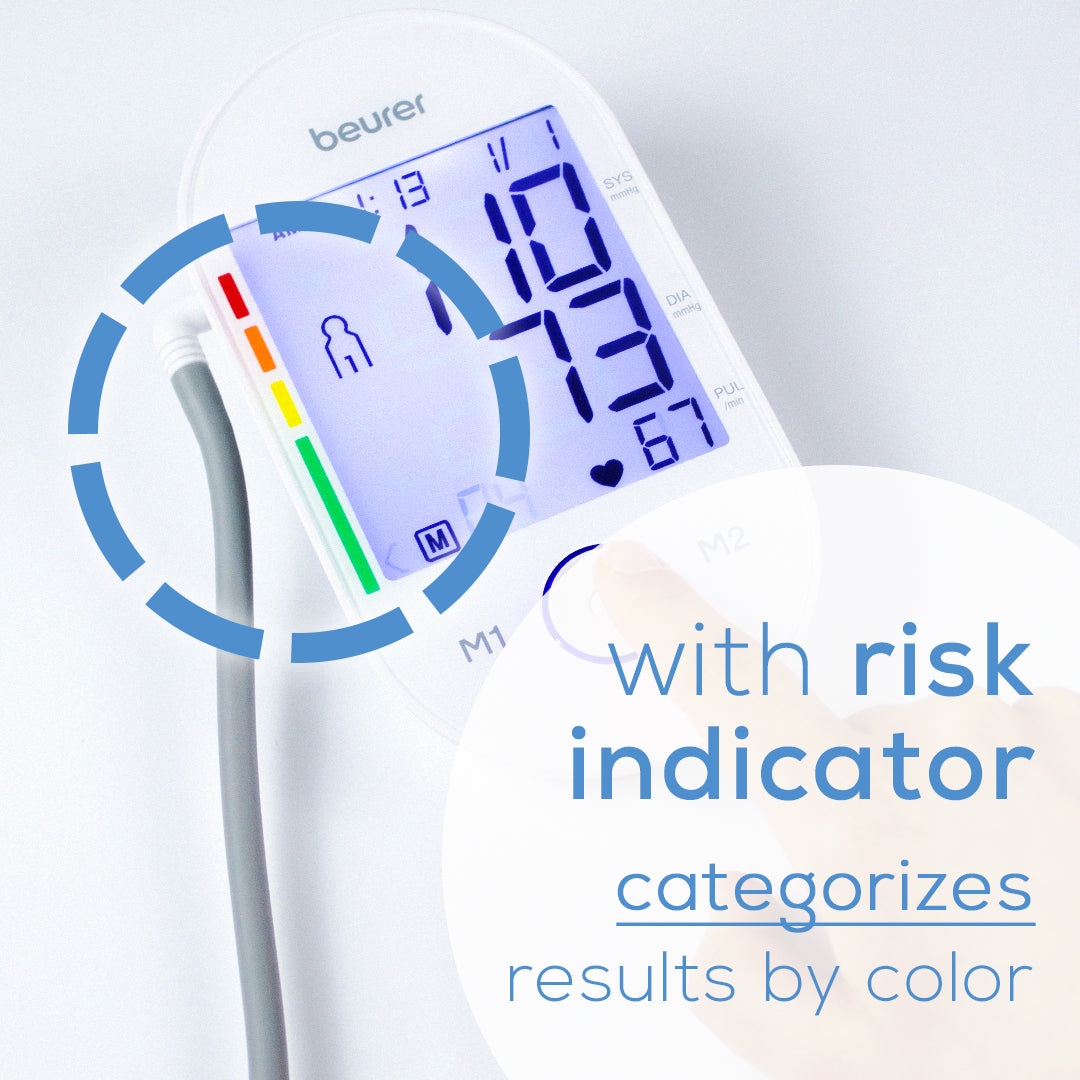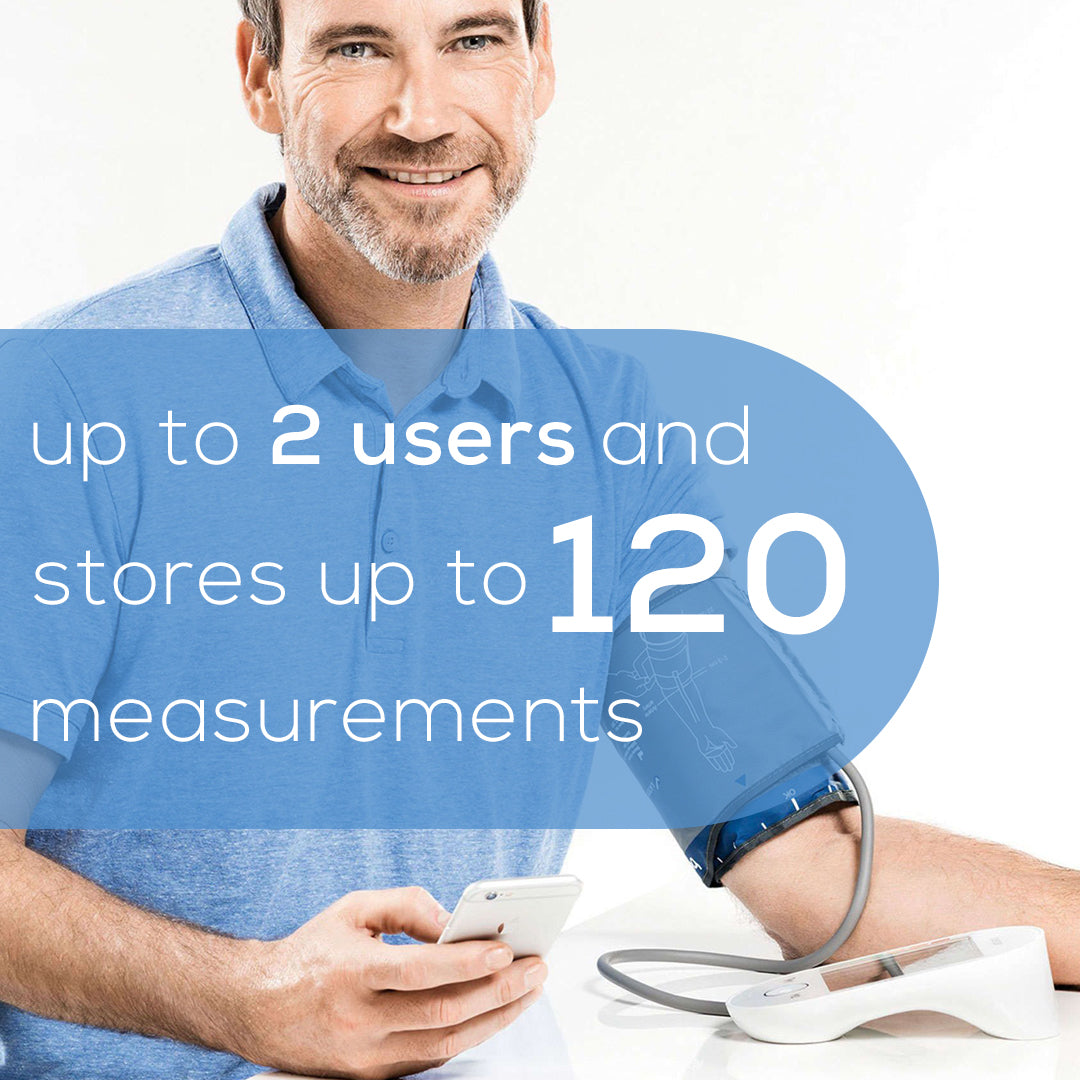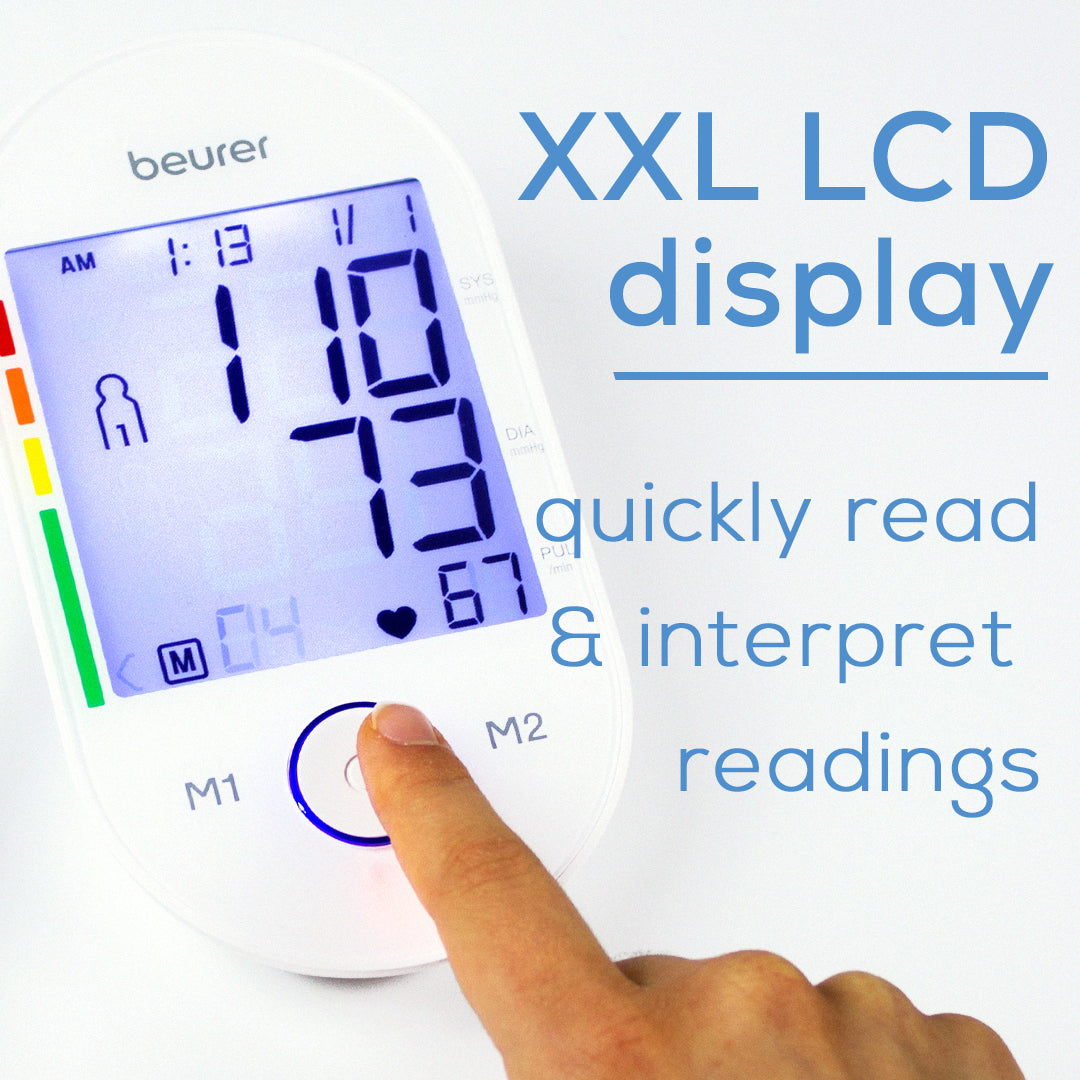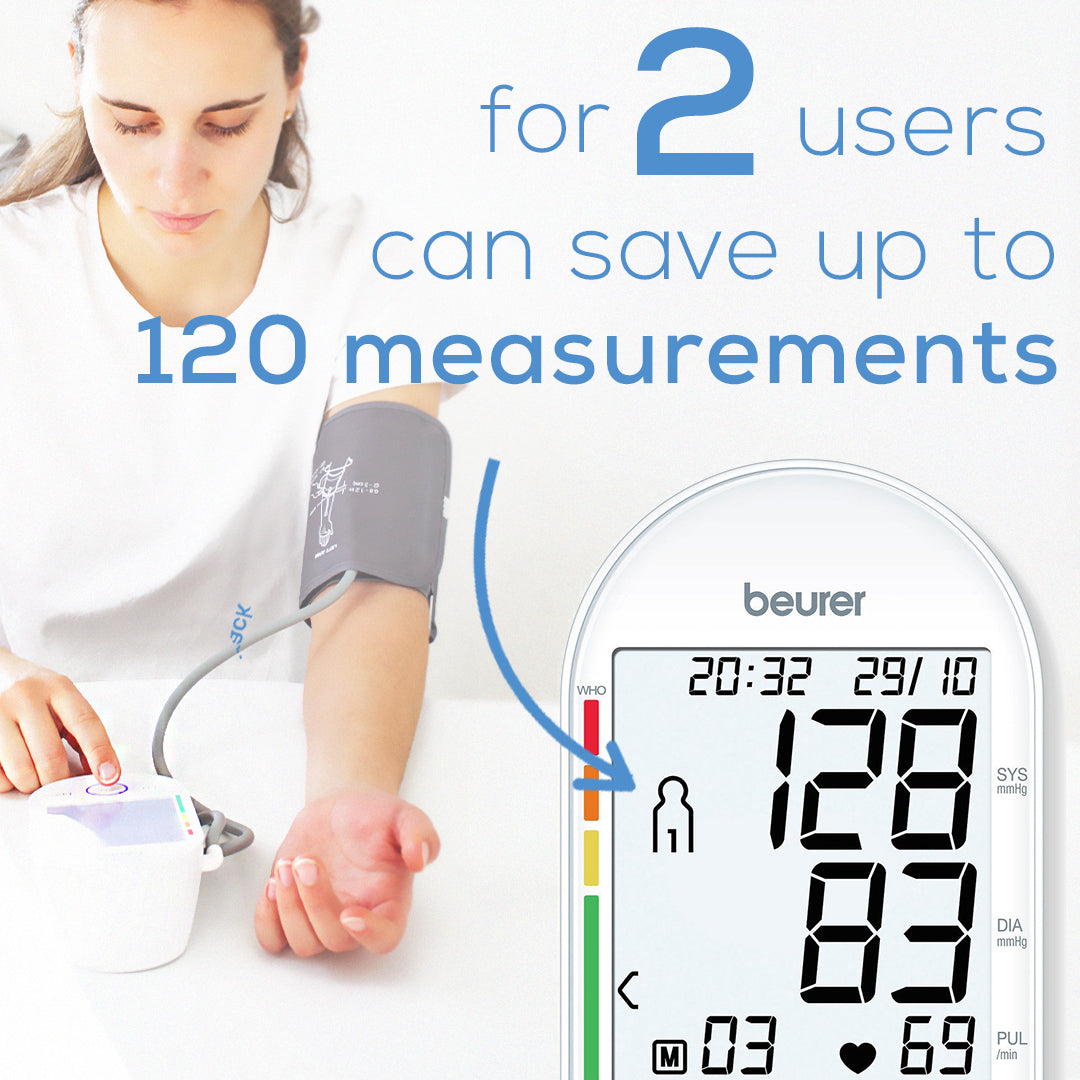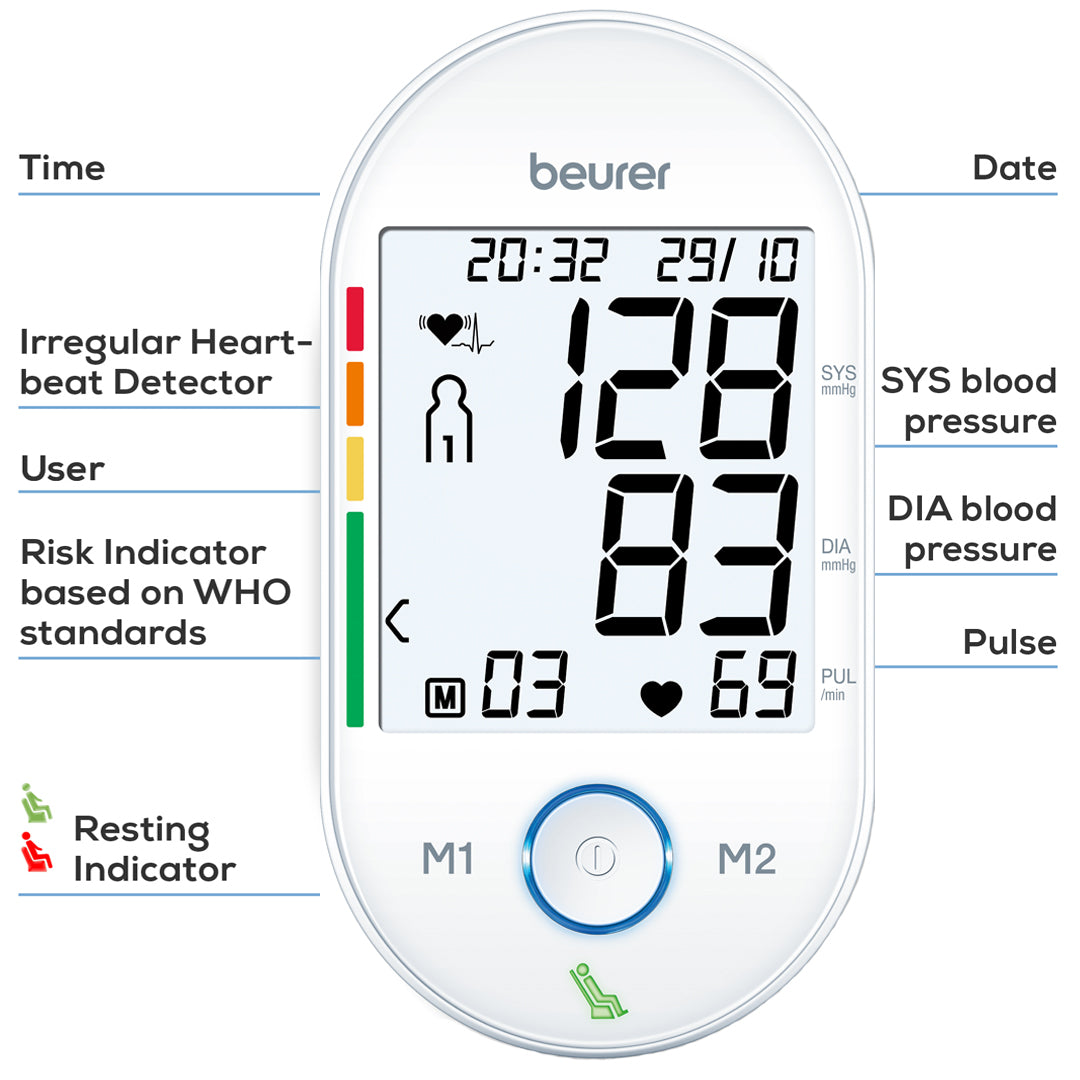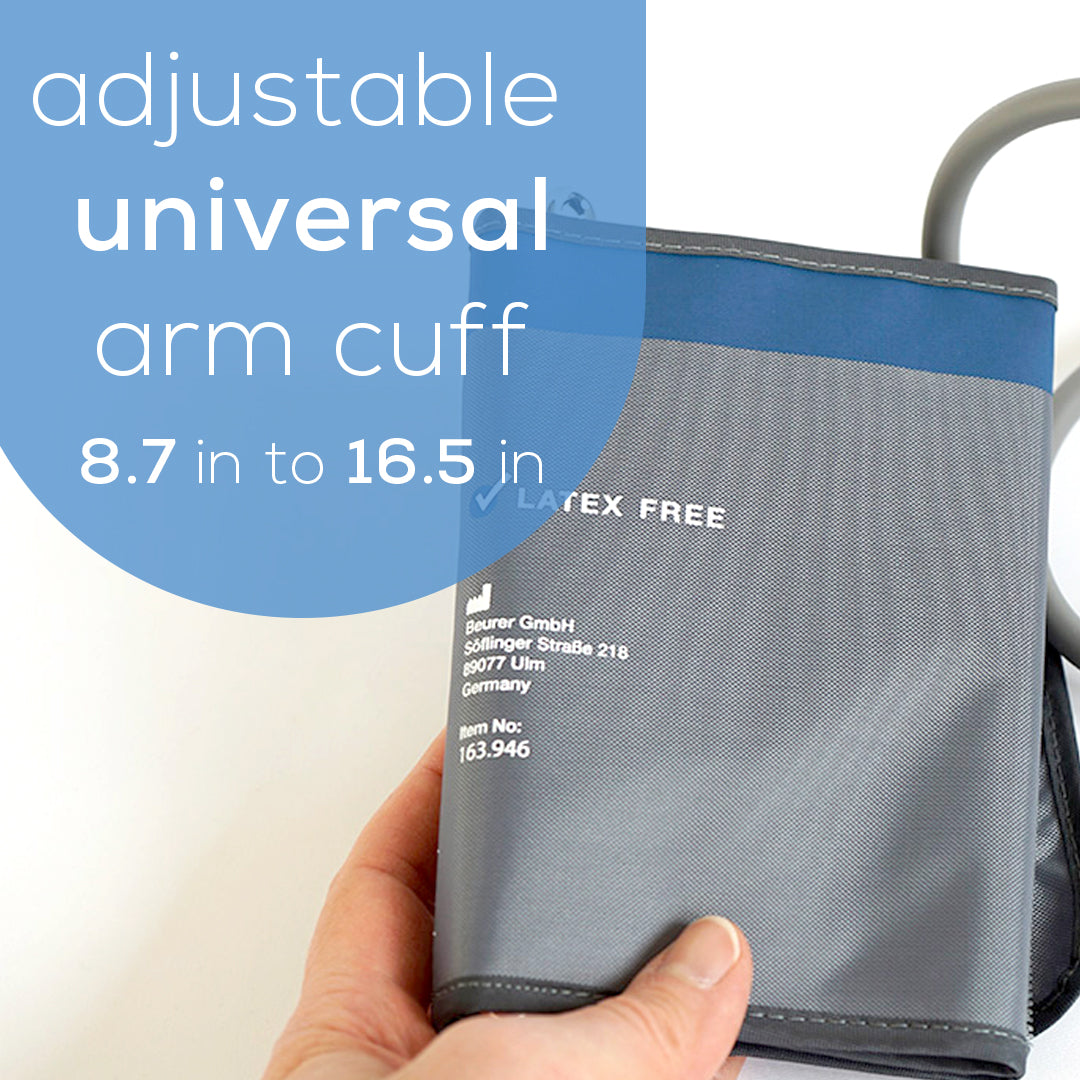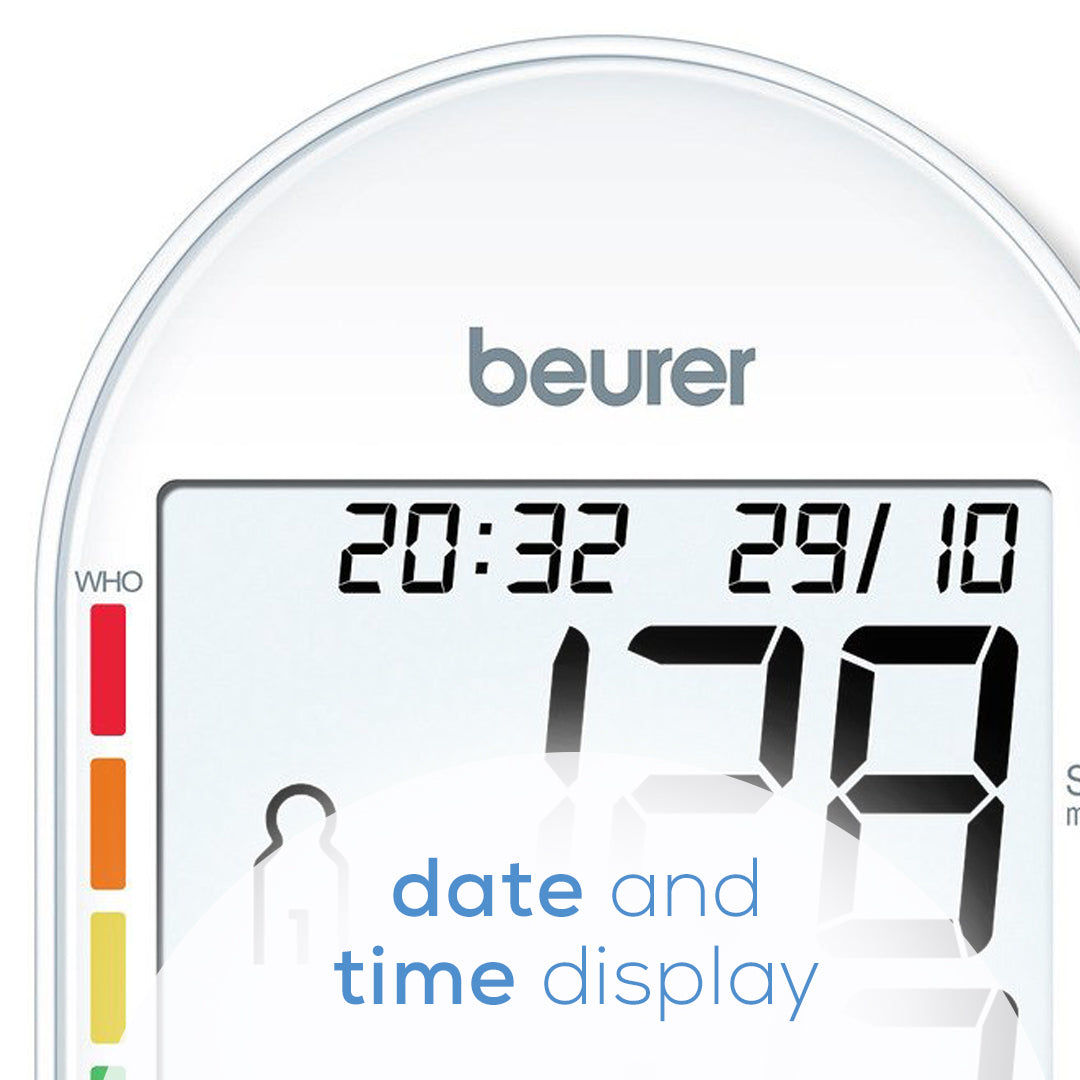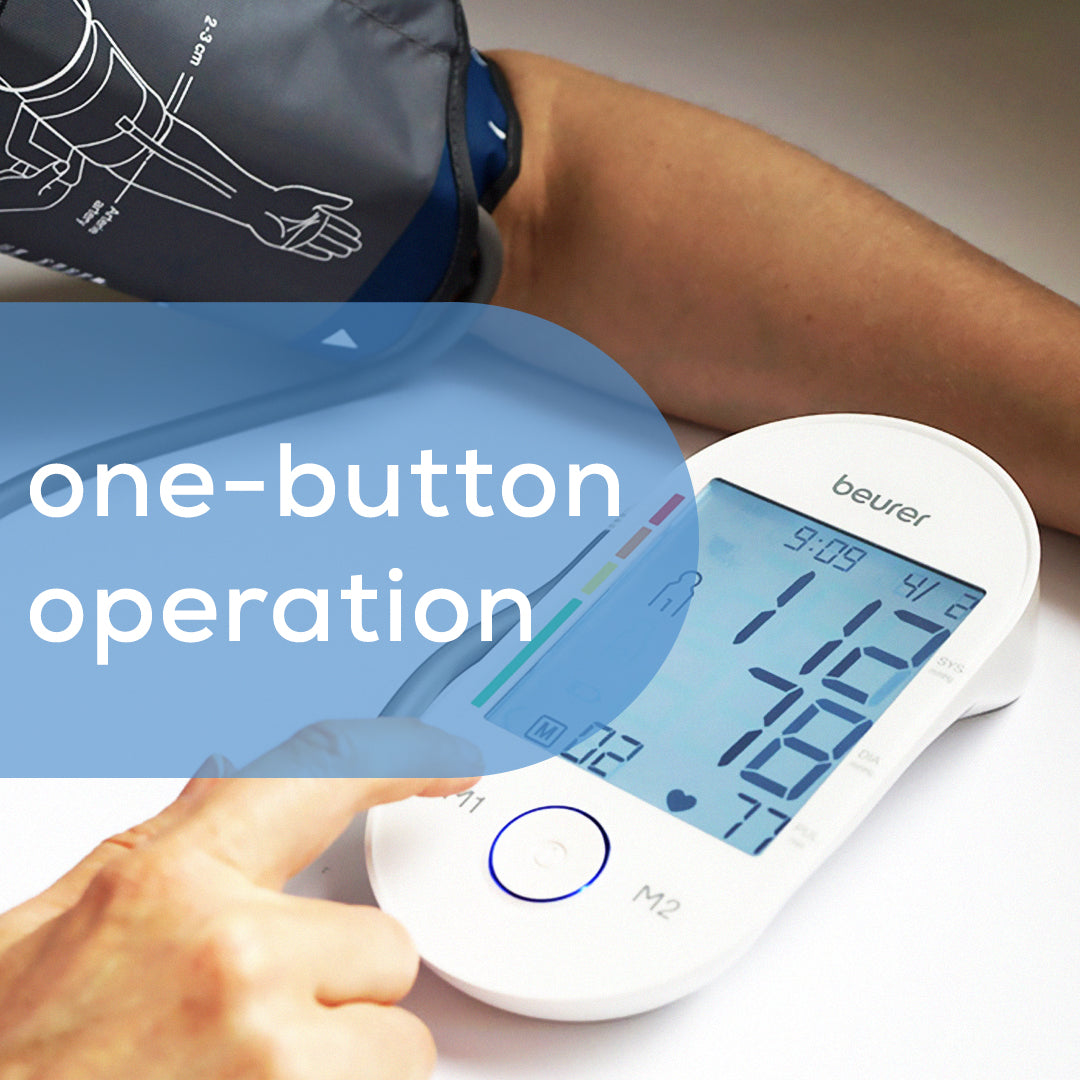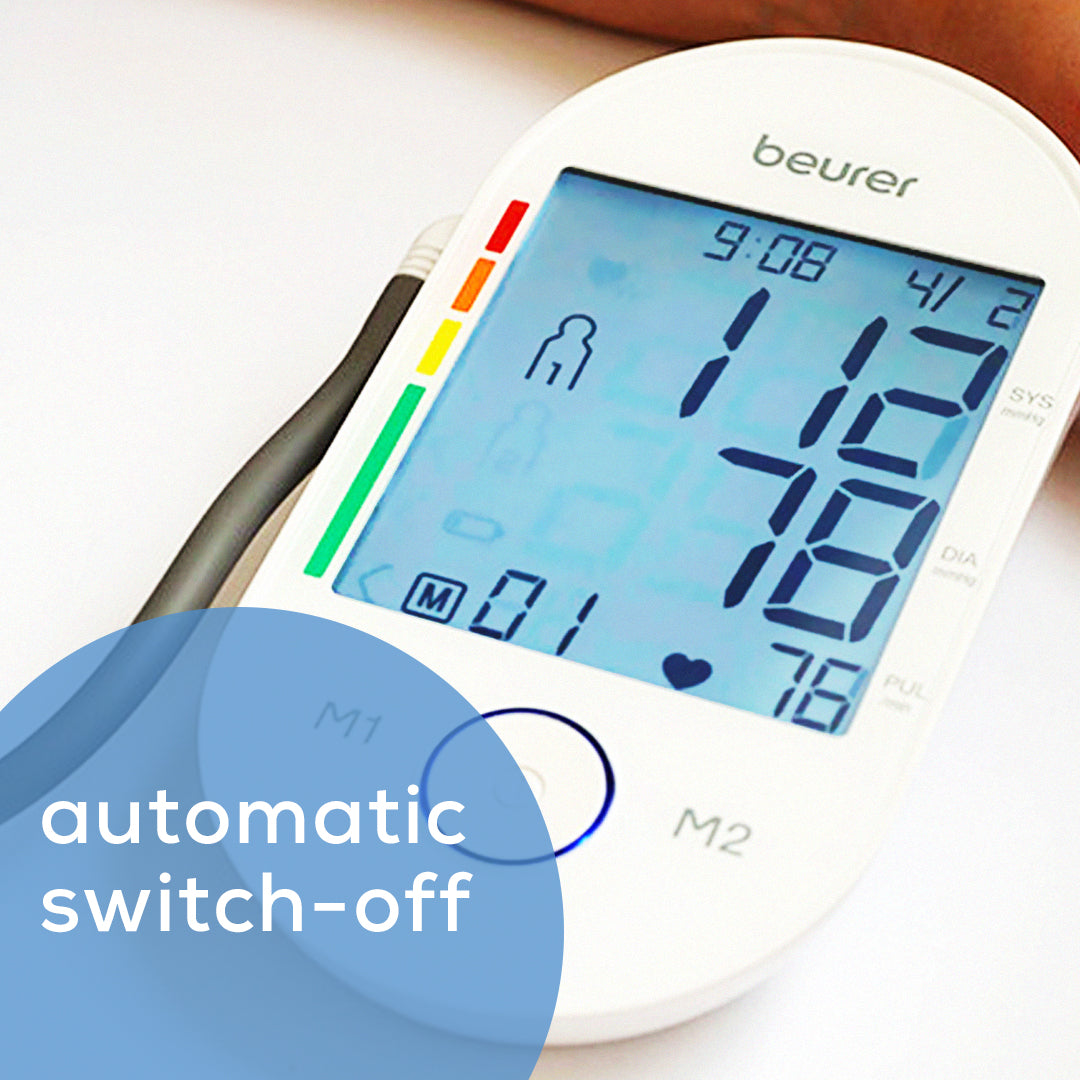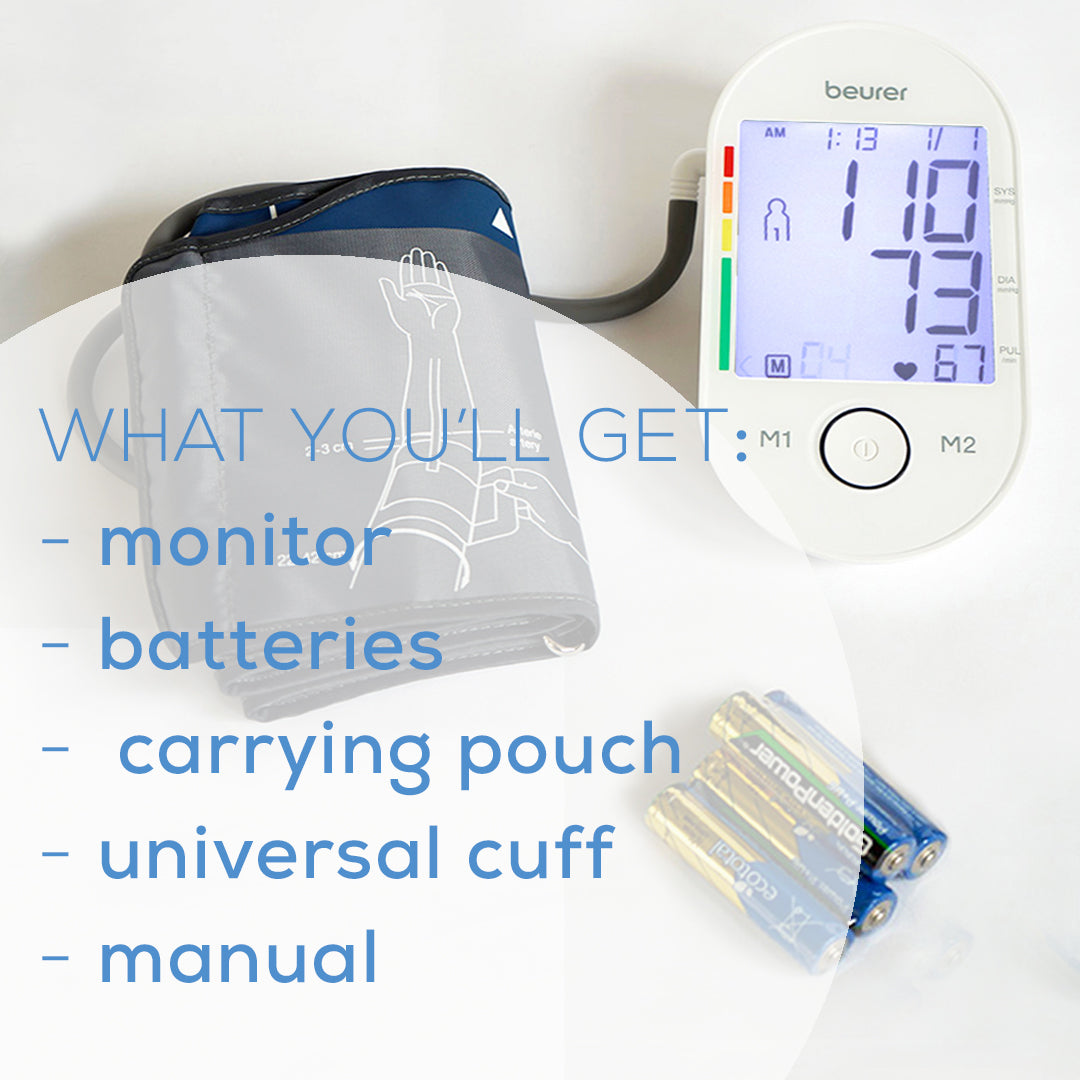Tensiómetro de brazo con indicador de reposo Beurer, BM55
Tensiómetro de brazo con indicador de reposo Beurer, BM55 ,
- PRECISIÓN DE CLASE MÉDICA: El dispositivo de medición de presión arterial digital BM55 de ingeniería alemana mide y almacena la presión arterial sistólica + diastólica y la frecuencia cardíaca con precisión clínica.
- PUÑO SUAVE AJUSTABLE Y FÁCIL DE USAR: El puño ajustable extra grande se puede usar fácilmente en la parte superior de los brazos pequeños y grandes. Una vez que su brazo esté colocado correctamente, medir su presión arterial está a solo tocar un botón.
- MÚLTIPLES USUARIOS: El monitor almacena hasta 60 mediciones para hasta 2 usuarios. Por lo tanto, es fácil rastrear y monitorear los resultados de toda su familia: ¡perfecto para uso profesional para observar a múltiples pacientes!
- CARACTERÍSTICAS ADICIONALES: Está equipado con un indicador de descanso patentado: muestra si está tranquilo o no para obtener los resultados más precisos. Una escala de colores le muestra de un vistazo si su presión arterial es demasiado alta.
- ACCESORIOS Y SOPORTE INCLUIDOS: El kit incluye baterías, un estuche de almacenamiento y un brazalete (para brazos de 8,7” a 16,5”). ¿Alguna pregunta? ¡Nuestro amigable equipo con sede en Florida siempre estará feliz de ayudar!
- Dimensiones del producto: 7,3 x 3,7 x 2,2 pulgadas; 0,5 libras
Descargue el manual de instrucciones de este producto aquí
✖
Leader in Technology

Designed & Engineered in Germany
All of our products are designed and engineered in Ulm, Germany. Each device is put through a rigorous testing process, to ensure it has been manufactured to high standards of quality and precision.
Main Features

patented resting Indicator
This feature ensures precise and reliable measurements. It verifies your resting state with a green or red pictogram on your monitor screen.

irregular heartbeat detection
When the device detects one or two irregular heartbeat rhythms during measurement you'll notice a heart symbol flash alerting you of this.
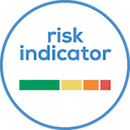
risk indicator
There's a colored scale on the left-hand side of your device. An arrow will flash and point to the assigned color after every reading.

average values
The average value of the morning measurements for the last 7 days is displayed.

universal cuff
The extra-large adjustable cuff is easily wearable for all. Wrap around with ease and accomodate tight enough to allow to fingerstips to slip underneath.

xl display
A reliable & accurate monitor that can easily become your favorite. It's the modern look and the XL screen does the trick. The 3.6" x 2.7" screen allows you to read and interpret designs right away.
What Can Cause High Blood Pressure?
Age
High blood pressure is more common as people age. The risk of developing itgoes up with age, prevalent in older adults.
Physical Inactivity
Lack of regular physical activity can lead to weight gain, obesity, and an unhealthy lifestyle, all of which can contribute to the development of high blood pressure.

Tobacco & Alcohol
Smoking cigarettes or using other tobacco products can damage blood vessels and increase the risk of having high blood pressure.
Pregnancy
Gestational hypertension, is a common condition that affects many pregnant women. It is defined as blood pressure of 140/90 mmHg or higher after 20 weeks of pregnancy.

Age
High blood pressure is more common as people age. The risk of developing itgoes up with age, prevalent in older adults.
Physical Inactivity
Lack of regular physical activity can lead to weight gain, obesity, and an unhealthy lifestyle, all of which can contribute to the development of high blood pressure.
Tobacco & Alcohol
Smoking cigarettes or using other tobacco products can damage blood vessels and increase the risk of having high blood pressure.
Pregnancy
Gestational hypertension, is a common condition that affects many pregnant women. It is defined as blood pressure of 140/90 mmHg or higher after 20 weeks of pregnancy.
Frequently Asked Questions
How do I properly measure my blood pressure?
1. Rest for at least 5 minutes before taking your blood pressure. Avoid smoking, drinking caffeine, or exercising for at least 30 minutes before taking your blood pressure.
2. Sit in an upright position with your back supported and your feet flat on the floor.
3. Place the blood pressure cuff on your bare skin, with the cuff's lower end, about 1 inch above the bend of your elbow.
4. The cuff should be snug but not tight. Make sure that the bottom of the cuff is level with the center of your heart.
5. Press the "start" button on the blood pressure monitor.
6. Do not talk or move during the measurement.
Why do I get different readings at home than at the doctor's office?
There are numerous factors that can lead to differences in blood pressure measurements between those taken at the doctor's office and elsewhere. The following are among the most common reasons, though this list is not exhaustive.
1. White Coat Effect: Anxiety or stress induced by the medical environment can lead to higher blood pressure readings, known as the white coat effect.
2. Technique Discrepancies: Inaccuracies in the measurement technique, such as improper cuff size or positioning, can cause variations in readings between different healthcare providers or settings.
3. Time of Measurement: Blood pressure can fluctuate throughout the day due to various factors like activity level, stress, or recent food or caffeine intake, leading to different readings.
Is an upper arm monitor more accurate than wrist?
Both types of monitors can be accurate, but there are some differences to consider when choosing between them.
Upper Arm: considered to be the most accurate type of home blood pressure monitors. These monitors are generally larger and more complex than wrist monitors, but they are more accurate and reliable.
Wrist: These kinds of monitors are equally acuurate, however, the position of the wrist during measurement can also affect the accuracy of the reading. The American Heart Association recommends that wrist monitors should be positioned at the same level as the heart, which can be difficult to achieve when using a wrist monitor.
What is the best time to measure my blood pressure?
The best time to measure your blood pressure can vary depending on your routine and any specific instructions from your healthcare provider. However, there are a few general recommendations:
1. Consistency: Try to measure it at the same time each day for consistency in readings.
2. Morning and Evening: Some people measure their blood pressure in the morning before taking medications or eating and in the evening before bedtime.
3. Before Medication: If you're taking medications for blood pressure or other conditions, check with your doctor about the best time to measure it in relation to your medication schedule.

